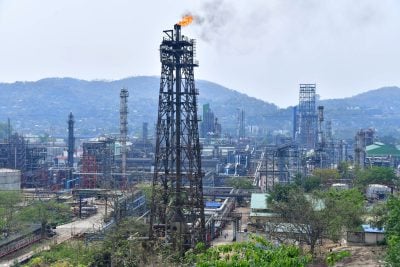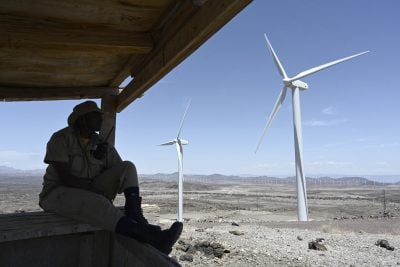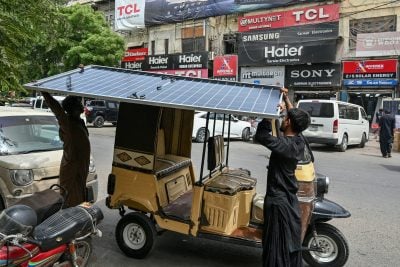As Africa transitions towards a lower-carbon energy system, reforming market structures in order to mobilise more private capital into energy projects must be a key priority for policymakers, argues Rory Connor
Many African countries have set out ambitious proposals for transitioning to a lower-carbon energy system, particularly through expansion of renewable energy. But bold ambitious commitments alone are just sentiment unless supplemented by more direct and integrative policies. There has been a dearth of transformative renewable energy policy measures since the emergence of independent power projects (IPPs) many years ago.
But now, some countries are proposing to reform the rigid market structures, which are perceived as over-dependent on state entities and a limited number of funding sources, which could mark the beginning of major change.
Meeting the climate goals
Two international treaties set the policy context for the energy transition in Africa: the UN Sustainable Development Goals (SDGs) and the UN Framework Convention on Climate Change (also known as the Paris Agreement).
The SDGs reframe the sustainable development agenda with the idea of justice at its core recognising things such as access to energy and water as, in effect, human rights. SDG 7 – to ensure access to affordable, reliable, sustainable and modern energy for all – is particularly relevant to the energy transition. For Africa, it means providing as many as 600m people with access to sustainable electricity by 2030.
Meanwhile, the signatories to the Paris Agreement pledged to reduce carbon emissions with the intent of keeping global warming well below 2°C as against pre-industrial levels while pursuing the more ambitious target of limiting temperature increases to 1.5°C. With the exceptions of Angola, Eritrea, Libya and South Sudan, every country in Africa has signed and ratified the Paris Agreement.
The dual objectives of SDG 7 and the Paris Agreement create a dichotomy that is at the heart of the energy transition for Africa: on the one hand, the need for massive investment in new energy infrastructure to ensure that all Africans enjoy the access to reliable electricity that is taken for granted in other parts of the world; on the other, the need to contribute to carbon emission reduction even though electric power generation globally has been a major contributor to carbon emissions.
Need for private capital
In its 2019 Africa Energy Outlook report, the International Energy Agency noted that effective policy choices would guide Africa to a more inclusive and sustainable energy future. Policy around energy transition in Africa encapsulates a range of matters including renewable power generation, rural electrification, energy for cooking, the role of gas, transmission and distribution, and regional cooperation.
But with investment needs exceeding $100bn per annum until 2040, mobilisation of a greater proportion of private capital into transitional energy projects in Africa must be a key influencer for policy decisions.
Whilst asset managers, commercial financial institutions and multi-national corporates have poured capital into energy and infrastructure projects in North America, Europe and Asia, Africa has been left largely untouched, with proliferation of energy and infrastructure projects on the continent remaining heavily dependent on financing from development finance institutions (DFIs) and export credit agencies (ECAs).
Market reform is essential
This is largely due to the perceived risk of investing in energy and infrastructure projects in Africa given the market structures which make transacting with often poorly performing, and politically exposed, state-owned entities unavoidable.
The enduring presence of the underfunded state-owned utility companies in African electricity markets means that, regardless of whatever broad policy ambitions may have been set, physical expansion and improvement of the energy system ultimately relies on state-owned entities: either to actively develop new projects directly or by serving as the single-buyer counterparty for independent power projects (IPPs).
In this context, two common themes emerge:
- Projects developed by the state entities directly are often funded through tied-contractor financing packages whereby foreign export credit agencies (most commonly, Chinese) loan money directly to the host government which is then used to pay contractors from the same country of origin as the export credit agency.
- Large scale IPPs that have actually achieved financial close rely on highly structured project arrangements with long-term fixed price contracts, supplemented by bespoke de-risking instruments such as loan guarantees issued by multi-lateral institutions.
Both of these models have come in for criticism, with tied bilateral financing arrangements regarded by some as a form of ‘debt diplomacy’ as well as a way to side-step public procurement rules and best international environmental practices. IPPs are regarded as expensive and reliant on unsustainable contracting practices which prop-up non-creditworthy state-owned entities.
Whilst these tried and tested techniques will continue to play an important role in financing Africa’s energy transition, policies to reform and restructure Africa’s electricity markets may be required to attract private capital on the scale required. Privatisations that have occurred – such as in Nigeria and Uganda – have been largely limited to distribution companies and individual generation projects.
Liberalisation, meanwhile, has mostly been confined to the introduction of IPPs into the generation sector. Most market structures still provide an IPP with only one route to market: a PPA with a state-owned utility company.
Take Nigeria or Uganda for example, whilst the electricity markets of these countries have been unbundled, and undergone some privatisation, generators are not able to sell power directly to distribution companies or other buyers – instead, they must sell power to state-owned companies (NBET in Nigeria and UETCL in Uganda). Projects of this nature are only financeable through highly structured DFI-led transactions.
These restrictions have funnelled investment into electricity generation whilst leaving transmission and distribution badly underfunded. And no matter how much capital is investment into power generation, if transmission and distribution systems are not fit for purpose then SDG7 cannot be achieved because energy will not reach the end users.
Progressive policy developments
But signs of progressive policy developments are beginning to appear. In September 2019 Ghana announced plans to launch the first wholesale electricity market in Africa by 2022. If successful this will be a first step toward breaking the dependency on long-term bilateral contracts with state-owned entities as the only means of investing in the power generation sector in Africa.
More recently, the National Electricity Regulatory Authority of Uganda indicated an intention to privatise parts of the Ugandan power transmission system – meaning as much as $2.5bn of private capital will be mobilised to fund grid upgrades required to ensure that the energy generated by large new generation projects actually reaches end-users.
This would be first example of private ownership and operation of transmission infrastructure in Africa. And then of course is the unbundling, and possible privatisation, of South Africa’s giant, and debt-laden, power utility, Eskom, which was announced in late 2019. That could be a watershed moment in the African energy sector.
Experienced observers of the African energy sector will perhaps greet the announcements from Ghana and Uganda with a dose of caution – similar announcements have made before in Africa, most notably in Nigeria, and yet have not come to pass. And whilst Eskom certainly does seem on a defined path to unbundling, the debate over its privatisation seems to be on a different trajectory.
Nevertheless, these announcements surely represent cause for optimism particularly coupled with the emergence of new market entrants such as CDC Gridworks, who are specifically targeting investments in the African power transmission sector.
Rory Connor is a Partner at Addleshaw Goddard LLP, London.
Click to see more articles from the Africa Energy Yearbook 2020
Related articles
How is Covid-19 impacting energy investment? African Business surveys market
Want to continue reading? Subscribe today.
You've read all your free articles for this month! Subscribe now to enjoy full access to our content.
Digital Monthly
£8.00 / month
Receive full unlimited access to our articles, opinions, podcasts and more.
Digital Yearly
£70.00 / year
Our best value offer - save £26 and gain access to all of our digital content for an entire year!

 Sign in with Google
Sign in with Google 




